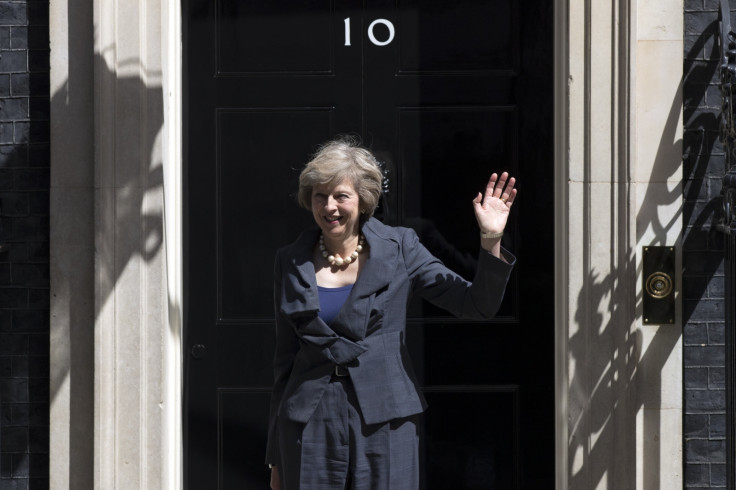Theresa May must rewrite Cameron's legacy at the Tory Conference
May should by now be in command and control, but Cameron's allies are intent on guarding his legacy.

When Theresa May takes to the stage in Birmingham next week to deliver her first Conservative party conference speech as leader and prime minister, she will have been in the job nearly three months. Thanks to the carelessness of her opponents, May has had, in theory, the luxury of time to prepare the ground, to frame the agenda, to set the tone of her new government. It could have been very different, if the Tory leadership contest had run its full term: the PM would have been engaged in a bitter battle with pro-Brexit Andrea Leadsom until just three weeks ago. With three months under her belt, May should now be in command and control – so why does it feel like she is anything but?
Having effortlessly despatched all of her leadership rivals over the summer, May now cannot shake off her most dangerous opponent: her predecessor. David Cameron may have insisted he was stepping down as an MP earlier this month because he did not want to be a "distraction" to the prime minister, yet he and his allies are so intent on guarding his legacy that they are becoming exactly that. In fact, "distraction" is an understatement. It is as if Cameron has put on a tutu and is performing a pas de bourrée down Whitehall shouting "My legacy! My legacy!".
It is perfectly natural, of course, for an ex-prime minister to want to see his policies continue after he has handed the keys to Downing Street to someone from the same team. It is understandable that, after the hard-won battle on free schools fought by Michael Gove, the prospect of a return to grammars should provoke a little Cameroonian push-back. Yet is May really expected to simply inhabit Number 10 like some sort of Tory Stepford Wife, a bland, obliging cipher who will rubber stamp every project and reform that came out of Cameron's government? If she had set out to be merely a Continuity Cameroon, her own legacy would be only whatever she does and does not do with Brexit. If that were to happen, her legacy would be a disaster.
Instead, May has sought to chart her own course. She has attempted to be bold. On the deal for a new nuclear plant at Hinkley Point, due to be signed just as power was handed over in Downing Street, she did not merely give the green light to a controversial contract but ordered a review to properly examine the detail (before, in the end, deciding to go ahead). Industrial strategy is no longer centred on the Northern Powerhouse but on a wider, nationwide basis. The Chancellor, Philip Hammond, will ease the grip of years of Osbornian austerity. Gove's prison reforms have been put on hold by his successor as Justice Secretary, Liz Truss. And by reopening the debate on selection, the most contentious departure from Cameron's government, May is being as radical as Gove was on free schools.
On this, I happen to side with the old regime, who are right to complain that new grammars will entrench educational divides and hamper social mobility. The point is that no one in Westminster should be surprised that a new Prime Minister wants to rule her own government with bold reforms.
The problem for May is that while she has her own agenda, the Cameroons are in control of the narrative. Heavy briefings on how May is trashing Cameron's legacy are everywhere. To make matters worse, party conference season is also political memoirs season, and her reputation has taken a battering in books about Brexit and its fallout. Tim Shipman's explosive page-turner on the referendum, All Out War, reports that Cameron called the then Home Secretary "lily-livered" on immigration.
The memoirs of Cameron's former director of communications, Sir Craig Oliver, portrays the new PM as a "submarine" during the referendum campaign. Unless May – who governs with a tiny majority and a fragile claim to a mandate – seizes back control of the narrative, it will be as though Cameron is still in charge.
The sniping over her role in the referendum will cloud every negotiation she makes on Brexit. If her plans for education, the economy and industrial future of the nation are allowed to be framed as Cameron's legacy undone, then she has no hope of building her own. At her conference speech in Birmingham next week, May needs to be bolder and louder still.
Jane Merrick is a freelance journalist and former political editor of The Independent on Sunday. She writes an allotment blog, www.heroutdoors.uk. Follow her on Twitter @janemerrick23
© Copyright IBTimes 2025. All rights reserved.






















